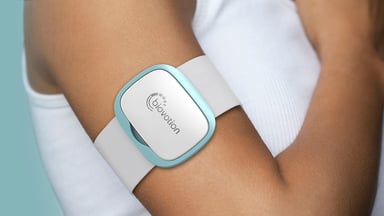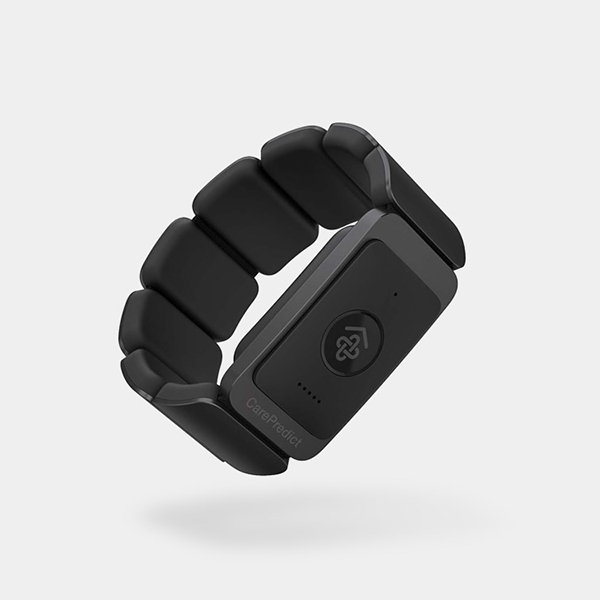Wearable Healthcare Technology: Transforming Health from a Startup Perspective
What is Wearable Healthcare Technology?
Wearable healthcare technology encompasses a range of devices worn on the body to track, analyze, and even respond to health data in real time. The global wearable healthcare tech market has been growing, with a Total Addressable Market (TAM) of USD 33.85 billion in 2023 and is projected to grow at a compound annual growth rate (CAGR) of 25.66% from 2024 to 2030. This in turn underlines the rising demand for real-time health monitoring, preventive care, and personalized healthcare.
Wearable healthcare technology includes diverse devices such as biosensors, activity trackers, ECG monitors, and smart patches that continuously monitor health metrics. These tools empower both users and healthcare providers with actionable data, supporting early intervention and, ultimately, better health outcomes. As healthcare continues its digital shift, startups at the forefront of wearable tech are poised to revolutionize how we track and manage health.

Why Wearable Healthcare Technology?
Wearables offer more than just convenience; they represent a pivotal shift in healthcare’s approach to data and engagement:
Data-Driven Solutions: The data generated from wearables offers valuable insights into population health trends. Healthcare providers and researchers can use this data for predictive analytics, understanding patient needs on an individual level and optimizing health interventions
Chronic Disease Management: For individuals managing chronic diseases such as diabetes, cardiovascular conditions, and hypertension, continuous monitoring devices allow for real-time insights into their health, enabling adjustments to treatment before emergencies arise .
Enhance Engagement: Wearables provide patients with tools to actively engage in their own healthcare journey. Users gain an increased sense of responsibility and adherence to treatments when they can track their health metrics directly, improving lifestyle habits and overall wellness .
Key Players and Emerging Startups in Wearable Healthcare Technology
Taking a look at the market landscape, several startups have emerged as key players, each focusing on a unique aspect of health monitoring and management. Below are a few prominent and emerging startups shaping the future of this industry:
Biofourmis: Known for its advanced remote monitoring platform, Biofourmis uses AI to provide predictive health analytics, helping healthcare providers stay ahead of patient health needs. Their remote monitoring solutions are already making waves in the management of chronic conditions.
Tempo Health: A rising star in diabetes care, Tempo Health combines continuous glucose monitoring with AI analysis to deliver actionable insights for patients. Their focus on diabetes management reflects the increasing trend of specialized wearables targeting specific chronic conditions.
NeuroFlow: This startup is taking a unique approach to wearable technology, focusing on mental health. NeuroFlow’s platform integrates biometric data tracking to support mental health treatment, emphasizing the importance of a holistic view of patient well-being. As of 2024, Neuroflow has secured over $30M in funding
CarePredict: Specializing in elder care, CarePredict uses wearable sensors to monitor seniors’ daily activities and detect changes that could signal health risks, such as decreased mobility or irregular eating habits. Their solution not only supports senior living facilities but also offers peace of mind to families, aiming to prevent serious health incidents through early detection and intervention.

CarePredict Tempo Monitor
What’s Next for Wearable Healthcare Technology?
Given the rapid advancements in AI and sensor quality, the future of wearable healthcare technology holds exciting potential, startups and investors are focused on pushing the boundaries of what these devices can achieve. Advances in miniaturization mean that wearables are becoming more comfortable and unobtrusive, which is critical for long-term wearability.
From smart patches to flexible biosensors, these devices will become an almost invisible part of everyday life, designed for continuous monitoring without hindrance. Outside of this, the industry will likely see an increased focus on wearable solutions targeting specific health conditions. Startups like the ones mentioned above are leading the shift towards niche health conditions.
Finally, as wearable healthcare technology matures, integration with broader healthcare systems, including electronic health records (EHRs) and telemedicine platforms, will be crucial. Startups are already working on building ecosystems that allow wearables to seamlessly communicate with other digital health tools, creating a more cohesive and comprehensive healthcare experience.
—————————————–
If you are a builder, investor or researcher in the space and would like to have a chat – please reach out to me at amit.k@thelotuscapital.com
